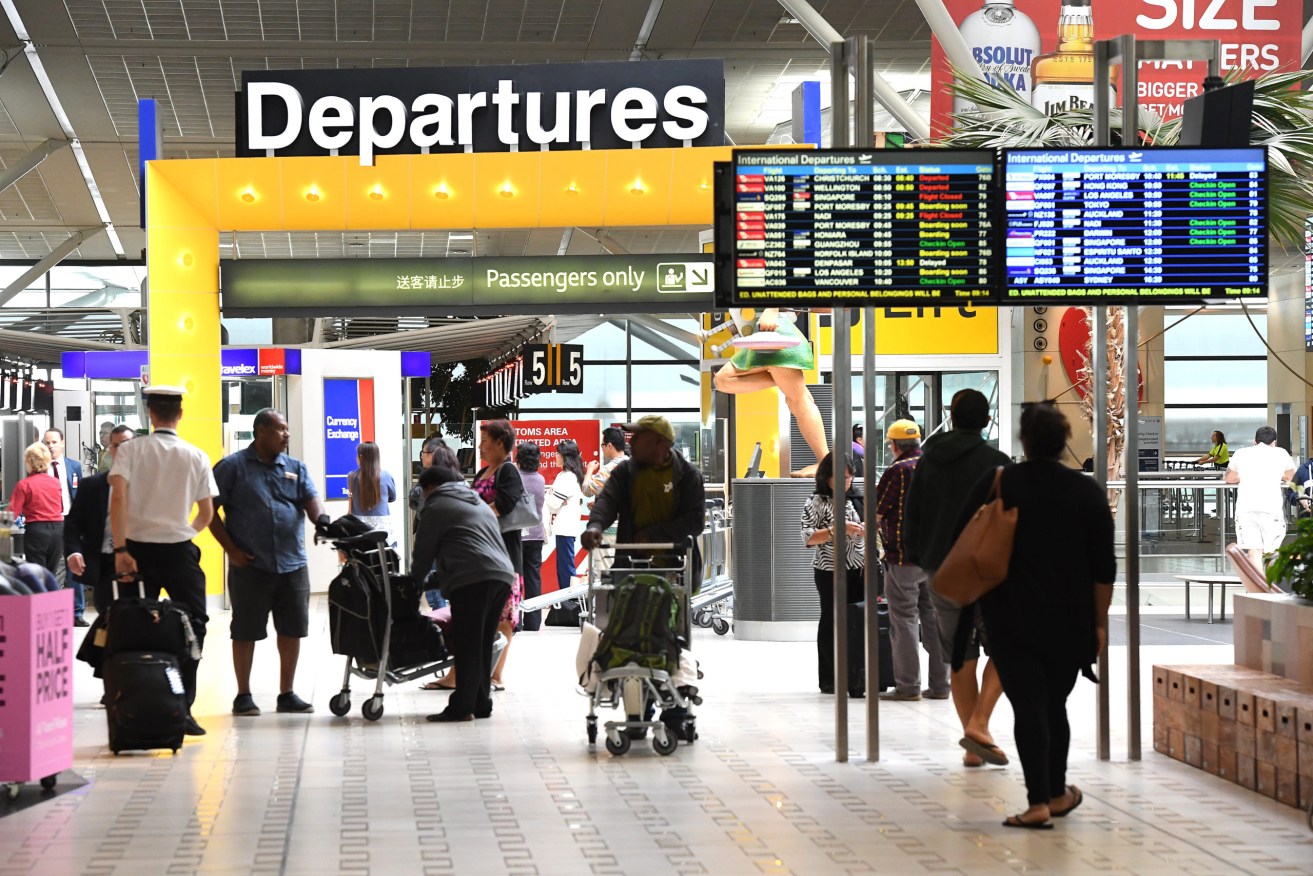Aussies still lukewarm about overseas travel, half will prefer to stay home
As Australia prepares to open international borders it seems there is not as much pent-up demand for overseas travel as first anticipated.

Analysts said lack of staff was restricting tourism volume growth which was also being impacted by higher fuel costs pushing up air fares (Photo: Dave Hunt/AAP PHOTOS)
A new study from the University of Queensland shows that just 51 per cent of Australians are planning to travel overseas once borders open.
This is despite borders having been slammed shut for the past 18 months.
Associate Professor Gabby Walters, from the University of Queensland Business School, says the latest study reveals Australians would prefer to travel domestically if they travel at all.
“This shows there may be a lukewarm response to the opening of international borders for the first time in 18 months,” Dr Walters said.
According to the survey of 560 Australians, conducted by Walters, the most popular destinations for those wishing to head overseas are New Zealand and Europe.
Of those surveyed, 33 per cent said they would prefer to travel domestically and 16 per cent said they would not travel at all.
Queensland is perceived as the safest place to holiday in Australia, followed closely by Western Australia and Tasmania.
“Queensland has low case numbers, great coastal locations and sunshine, while New South Wales and Victoria have been front and centre of negative COVID-19 publicity,” Walters said.
The challenge for Queensland now is to find enough staff to work in the tourism sector to meet the demand.
Queensland Tourism Industry Council chief executive Daniel Gschwind said there are currently 3000 unfilled hospitality positions in the State.
“The challenge is to find sufficient staff to reactivate our businesses to full capacity. Already many businesses struggle to find enough staff,” Gschwind said.
The QTIC is presently running a career roadshow in Toowoomba in a bid to promote tourism and hospital industry careers.
“There are opportunities for pretty much anyone in our industry,” he said.
Gschwind said the UQ study appeared to be on the money.
“I believe a lot of people remain hesitant to take long journeys with extended periods on planes, going through potentially crowded airports after 18 months of being bombarded with catastrophic news on COVID,” he said.
“I think on balance it will be a slow burn to get (international travel) reactivated. This is an opportunity for domestic tourism to reaccelerate.”
Gschwind said Australians were now seeking out unique experiences at home.
UQ conducted a similar survey 18 months ago which also examined how Australians feel about domestic travel.
Walters said that compared to the April 2020 survey, people’s sentiments about COVID-19 had now changed.
“Previously, people felt uncertain and uneasy about the virus and this makes sense because in April last year, no one knew what was to come. There is now more emphasis on vaccination status, COVID-19 numbers and standards when planning travel,” she said.
The study reveals that while destination preferences within Australia have largely remained the same since April 2020, the desire to travel to cities has risen from 17 to 25 per cent.
Coastal destinations remain a favourite among 44 per cent of those surveyed.












